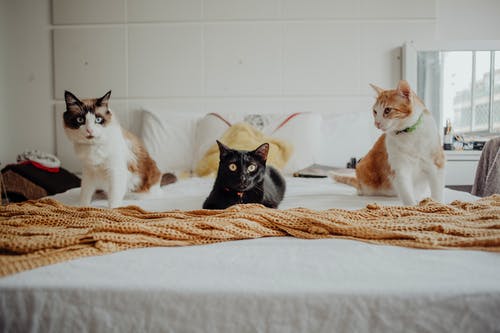
When Should You Take Your Pet to a Veterinary Eye Specialist? The Crucial Timelines
July 21, 2023Just like humans, our pets can also experience a wide range of eye issues. As pet owners, it’s important to recognize when your furry, scaly, or feathered friend may need specialized care. In this article, we explore common pet eye disorders, signs and symptoms that warrant a visit to a veterinary eye specialist, and the importance of early diagnosis and treatment.
Common Pet Eye Disorders
Our pets can develop various eye disorders. Some common ones include:
Cataracts
Cataracts involve the clouding of the lens within the eye, leading to loss of vision. They can affect pets at any age and may be genetic or due to aging, injury, or illness.
Glaucoma
This condition involves increased pressure within the eye, leading to optic nerve damage and vision loss. It can be acute or chronic and may cause severe pain.
Dry Eye
Also called keratoconjunctivitis sicca, this condition is characterized by the inadequate production of tears, leading to irritated, itchy, and painful eyes.
Retinal Detachment
Retinal detachment occurs when the retina separates from its underlying supportive tissue. It can lead to permanent blindness if left untreated.
Ocular Diseases
Various ocular diseases affect the different parts of the eye, ranging from corneal disorders to tumors.
When to Take Your Pet to a Veterinary Eye Specialist
Regular Eye Check-ups for Pets
It’s essential to take your pet for regular check-ups, including eye exams, especially if they belong to a breed prone to eye issues. Early diagnosis is key to managing many eye disorders.
Early Diagnosis of Pet Eye Problems
If you notice any changes in your pet’s eyes or behavior that may point towards eye problems, consult your general veterinarian. They may refer you to an animal ophthalmologist for specialized care, as some conditions require prompt treatment.
Situations That Require Immediate Attention
Some eye issues are emergencies and need immediate attention. If your pet is in severe pain, has significant vision loss, or experiences sudden eye changes, visit a veterinary eye specialist as soon as possible.
Signs and Symptoms of Eye Problems in Pets
Be watchful for these common signs and symptoms of eye issues in your pet:
- Redness
- Discharge
- Pain or discomfort
- Changes in the appearance of the eyes
- Vision loss
The Role of Animal Ophthalmologists in Treating Pet Eye Conditions
Animal ophthalmologists have specialized training and expertise in diagnosing, managing, and treating pet eye conditions. This includes conducting diagnostic tests, prescribing medication, and even performing eye surgery for pets when necessary.
Preventative Eye Care for Pets
In addition to regular check-ups, preventative eye care includes identifying genetic predispositions, maintaining proper grooming and cleanliness, and ensuring your pet has a balanced diet. Visiting specialized eye care clinics and websites like animaleyeguys.com can offer useful information on managing your pet’s overall eye health.
What to Expect During a Visit to a Veterinary Eye Specialist
A comprehensive eye exam involves a detailed assessment of your pet’s medical history, overall health, and ocular health. The specialist will use their expertise and specialized equipment to diagnose the condition and determine the best course of treatment. In more complex cases, they may recommend vet ophthalmological services, which are specialized treatments specifically designed to address your pet’s unique eye health needs. By opting for these advanced services, you’ll ensure your pet receives the highest quality of care for its vision.
Eye Care for Different Types of Animals
Eye care needs may differ between cats, dogs, horses, and other animals. Specialized care is necessary for exotic or zoo animals, as their unique requirements may vary significantly from domestic pets.
The Importance of Early Diagnosis and Treatment
Timely diagnosis and treatment are critical in preventing further damage or vision loss in your pet. Early intervention can greatly improve your pet’s quality of life, decrease pain and discomfort, and minimize the need for invasive treatments or surgery.
Tips for Maintaining Good Eye Health in Your Pets
- Schedule regular check-ups with your general veterinarian
- Monitor your pet for early warning signs of eye issues
- Encourage a healthy diet and lifestyle
- Consult a veterinary eye specialist when needed
Conclusion
Eye care is an essential aspect of your pet’s overall health and well-being. Stay vigilant in monitoring your pet’s eyes for any changes and seek specialized care when necessary. Early diagnosis and treatment can mean the difference between preserving your pet’s sight and preventing irreversible damage.




